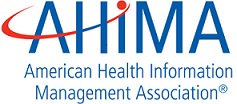Makes Recommendations for Improving Clinical Documenation in EHR Systems
American Health Information Management Association (AHIMA) represents a membership of over 67,000 health information management professionals and is an advocate for best practices and effective standards in health information. Last Wednesday a representative from the association testified before the Office of the National Coordinator HIT Policy Committee’s Meaningful Use Workgroup and Certification and Adoption Workgroup as part of ongoing deliberations on Stage 3 meaningful use. In testimony the association laid out its case that suboptimal clinical documentation in EHR systems is a critical issue that needs to be addressed.
Michelle Dougherty, director of research and development for the AHIMA Foundation, said in her testimony on the “Role of Clinical Documentation for Legal Purposes” that the association’s membership have identified specific challenges with clinical documentation and record management in EHR systems including:
- EHR Systems must meet the business requirements for a healthcare provider’s record of care for a patient, with the capability to meet today’s demands for use of information at the data and record level.
- EHR systems must better manage, preserve and disclose health records, from creation to destruction.
- More focus is needed on the data quality, information integrity and good documentation practices to achieve the policy goals of EHRs.
“If clinical documentation was wrong when it was used for billing or legal purposes, it was wrong when it was used by another clinician, researcher, public health authority or quality reporting agency,” said Dougherty. “It’s crucial to address data quality and record integrity now before health information exchanges (HIEs) become widespread.”
AHIMA recommended to policy makers four action items to address clinical documentation in EHR systems:
- Advance information management and information governance in healthcare, making sure organizations are managing information as an asset and adopting proactive decision-making and oversight processes.
- Implement health IT standards for records management and evidentiary support to make sure EHR systems can manage and preserve information throughout its lifecycle and meet the demands for valid health records.
- Reevaluate medical record policies to make sure they strike a balance between necessary oversight while still taking advantage of the technology.
- Utilize the health information management perspective and expertise to provide practical solutions to information integrity, management and governance advancements.
You can read AHIMA’s full testimony here.

